List of Prime Ministers of the United Kingdom
.jpg)
The Prime Minister of the United Kingdom is the head of Government of the United Kingdom and chairs Cabinet meetings. There is no specific date when the office of Prime Minister first appeared, as the role was not created but evolved over a period of time.[2] The term was used in the House of Commons in 1805,[3] it was certainly in Parliamentary use by the 1880s,[4] and in 1905 the post of Prime Minister was officially given recognition in the order of precedence.[5] Modern historians generally consider Sir Robert Walpole, who led the government of Great Britain for 21 years in 1721–42,[6][7] as the first Prime Minister to serve; Walpole is also the longest-serving British prime minister.[8] However, Sir Henry Campbell-Bannerman was the first titular Prime Minister and Margaret Thatcher the longest-serving Prime Minister to be officially referred to as such.
Strictly, the first "prime minister" of the United Kingdom (of Great Britain and Ireland) was William Pitt the Younger. The first Prime Minister of the current British state, the United Kingdom of Great Britain and Northern Ireland, was David Lloyd George, although the country had not been renamed officially until 1925 when Stanley Baldwin was Prime Minister.
Due to the gradual evolution of the post of Prime Minister, the title is applied to early Prime Ministers only retrospectively; this has sometimes given rise to academic dispute. William Pulteney, 1st Earl of Bath and James Waldegrave, 2nd Earl Waldegrave are both sometimes listed as Prime Ministers. Bath was invited to form a ministry following the resignation of Henry Pelham in 1746, as was Waldegrave in 1757 following the dismissal of William Pitt the Elder (the predominant minister of the first Devonshire ministry). Neither was able to command sufficient Parliamentary support to form a government; Bath stepped down after two days, and Waldegrave after four. Modern academic consensus does not consider either man to have held office as Prime Minister, and they are not listed.
Before 1721
Prior to the creation of the United Kingdom, the Treasury of England was led by the Lord High Treasurer. From Tudor times, the Lord High Treasurer was regarded as one of the Great Officers of State and was often (though not always) the dominant figure in the government: Edward Seymour, 1st Duke of Somerset (Lord High Treasurer, 1547–49) served as Lord Protector to his nephew Edward VI; William Cecil, 1st Baron Burghley (Lord High Treasurer, 1572–98) served Elizabeth I as chief advisor; Burghley's son Robert Cecil, 1st Earl of Salisbury (Lord Privy Seal and Secretary of State; Lord High Treasurer, 1608–12) succeeded his father as chief minister to Elizabeth I and then James I.
From the 17th century onwards, the Treasury was often run not by a single individual (the Lord High Treasurer) but by a commission (i.e. a committee) of Lords of the Treasury, led by the First Lord of the Treasury. The last Lords High Treasurer, Sidney Godolphin, 1st Earl of Godolphin (Lord High Treasurer, 1702–10) and Robert Harley, 1st Earl of Oxford and Earl Mortimer (Lord High Treasurer, 1711–14), led the government of Queen Anne.
Following the succession of George I in 1714, the arrangement of a commission of Lords of the Treasury as opposed to a single Lord High Treasurer became permanent. In 1714–17, the ministry was led by Viscount Townshend, who was nominally Northern Secretary, having three different First Lords. In 1717–21 Lords Stanhope and Sunderland led the administration jointly, with Stanhope managing foreign affairs and Sunderland managing domestic affairs. Stanhope died in February 1721 and Sunderland resigned in April 1721; Townshend and Walpole returned to office. From this point, the official office of First Lord was unofficially also known as being in a position of "prime minister". It was not however until the 20th century that the position was recognised by the government.[9] The Prime Minister still holds the office of First Lord of the Treasury due to constitutional convention.
Since 1721
| Century Regnal era |
| Whig Tory Conservative Peelite Liberal Labour National Labour | |||||||||
|---|---|---|---|---|---|---|---|---|---|
| Portrait | Name Honorifics & Constituency (Birth–Death) |
Term of office Electoral mandates |
Other ministerial offices held whilst Prime Minister |
Political party | Government | Monarch (Reign) |
Refs | ||
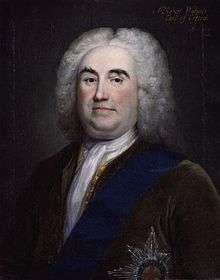 |
The Right Honourable Sir Robert Walpole KG KB MP for King's Lynn until 1742 Earl of Orford from 1742 (1676–1745) |
4 April 1721 |
15 May 1730 |
– First Lord of the Treasury – Chancellor of the Exchequer – Leader of the House of Commons |
Whig | Walpole–Townshend | George I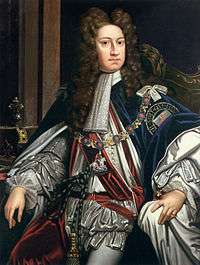 (1714–1727) |
[6] [8] [10] [11] | |
| 15 May 1730 |
11 February 1742 |
Walpole | |||||||
| Regarded as the first Prime Minister in the modern sense, shared equal power de jure alongside 2nd Viscount Townshend (of the Northern Department) until 1730. Aftermath of the South Sea Bubble crash in 1720; Licensing Act 1737. Walpole resigned five days after being raised from the House of Commons to the Lords after a failing performance in dealing with the War of Jenkins' Ear from 1739 (amidst accusations of corruption) following a vote of no confidence. | George II (1727–1760) | ||||||||
 |
The Right Honourable Spencer Compton, 1st Earl of Wilmington KG KB PC (1673–1743) |
16 February 1742 |
2 July 1743† |
– First Lord of the Treasury | Whig | Carteret | [12] | ||
| — | |||||||||
| Previously Speaker of the House of Commons in 1715–27. Titular head of a ministry directed de facto by Lord Carteret (as Northern Secretary). Increased tax on spirits; in poor health for much of his time as Prime Minister. †Died in office. | |||||||||
 |
The Right Honourable Henry Pelham FRS MP for Sussex (1694–1754) |
27 August 1743 |
10 February 1746 |
– First Lord of the Treasury – Chancellor of the Exchequer – Leader of the House of Commons |
Whig | Carteret; Broad Bottom |
[13] [14] [15] [16] | ||
| 12 February 1746 |
6 March 1754† | ||||||||
| 1747 | |||||||||
| Appointed to succeed the late Wilmington, Pelham ousted Lord Carteret (who resigned in 1744) from his post. Carteret and 1st Earl of Bath failed to form a new ministry in 1746, and Pelham returned to office two days after his resignation. Entered and saw to completion British involvement in the War of the Austrian Succession in 1744–48; Jacobite rising in 1745–46; two Carnatic Wars from 1746; War of Jenkins' Ear in 1748; reorganisation of the Royal Navy in the Consolidation Act 1749; adoption of the Gregorian calendar; Jewish Naturalization Act 1753; Marriage Act 1753. †Died in office. | |||||||||
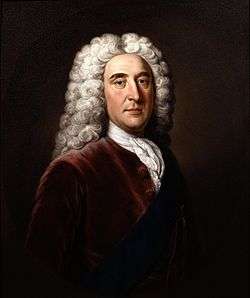 |
His Grace Thomas Pelham-Holles, 1st Duke of Newcastle KG PC FRS (1693–1768) |
16 March 1754 |
16 November 1756 |
– First Lord of the Treasury – Leader of the House of Lords |
Whig | Newcastle I | [12] [17] [18] | ||
| 1754 | |||||||||
| Brother of Pelham (whom Newcastle succeeded 10 days following his demise). Controversially attempted to reduce interest on national debt; French and Indian War, and oversaw the Fall of Minorca to the French in June 1756 (during the Seven Years' War). Replaced due to poor performance in the war. | |||||||||
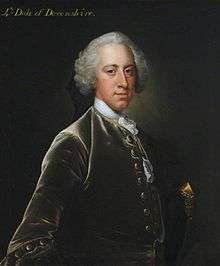 |
His Grace William Cavendish, 4th Duke of Devonshire KG PC (1720–1764) |
16 November 1756 |
25 June 1757 |
– First Lord of the Treasury – Leader of the House of Lords |
Whig | Pitt–Devonshire; 1757 Caretaker |
[12] [19] | ||
| — | |||||||||
| Titular head of a ministry largely run by Pitt the Elder (as Southern Secretary) until the dismissal of Pitt by the King in April 1757, for both opposition to the course of continental war and the court-martial and execution of Admiral Byng. With Pitt dismissed, 2nd Earl Waldegrave was invited by the King to form a new government and replace Devonshire, but Waldegrave failed to do so. Due to the exclusion of Pitt from his government, the caretaker ministry headed by Devonshire that followed proved weak. Resigned after brokering a power-sharing agreement between Pitt and Newcastle. | |||||||||
 |
His Grace Thomas Pelham-Holles, 1st Duke of Newcastle KG PC FRS (1693–1768) |
2 July 1757 |
26 May 1762 |
– First Lord of the Treasury – Leader of the House of Lords |
Whig | Newcastle II | [12] [20] | ||
| 1761 | |||||||||
| Returned to office with Pitt the Elder reinstated as Southern Secretary. Pitt (rather than Newcastle) largely prosecuted the persisting Seven Years' War, executing a strategy of continental war combined with expeditions against French colonies: Annus Mirabilis of 1759; captured Senegal, Gambia, Louisbourg, Quebec, defended Madras and prevented a French invasion of Great Britain with naval victories at Lagos and Quiberon. Personal opposition of the King to this led to a change of ministry. | George III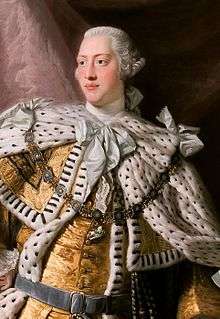 (1760–1820) | ||||||||
 |
The Right Honourable John Stuart, 3rd Earl of Bute KG PC (1713–1792) |
26 May 1762 |
8 April 1763 |
– First Lord of the Treasury – Leader of the House of Lords |
Tory | Bute | [21] | ||
| — | |||||||||
| A royal favourite (having previously been tutor to the King). First Scottish Prime Minister, ended the dominance of the Whigs; Treaty of Paris finishes the Seven Years' War. Resigned after fierce criticism of concessions in the treaty. | |||||||||
_by_William_Hoare_(1707-1792)_Cropped.jpg) |
The Right Honourable George Grenville PC MP for Buckingham (1712–1770) |
16 April 1763 |
13 July 1765 |
– First Lord of the Treasury – Chancellor of the Exchequer – Leader of the House of Commons |
Whig (Grenvillite) |
Grenville | [22] | ||
| — | |||||||||
| Briefly lowered domestic tax at the expense of the colonies (though this was rapidly repealed); introduced the unenforceable Stamp Act 1765, popularly cited as one of the causes of the American Revolution. His repealing of the taxes he rolled out were for all except that on tea, which was used as a reason for the Boston Tea Party. At home rocked by his prosecution of John Wilkes over issue 45 of The North Briton. | |||||||||
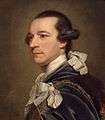 |
The Most Honourable Charles Watson-Wentworth, 2nd Marquess of Rockingham KG PC FRS (1730–1782) |
13 July 1765 |
30 July 1766 |
– First Lord of the Treasury – Leader of the House of Lords |
Whig (Rockingham) |
Rockingham I | [23] | ||
| — | |||||||||
| Repealed the controversial Stamp Act (inspired by protests from both the disaffected American colonists and British manufacturers, and its difficulty to enforce); introduced the Declaratory Act in March 1766. | |||||||||
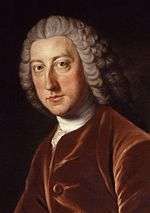 |
The Right Honourable William Pitt ‘the Elder,’ 1st Earl of Chatham PC FRS MP for Bath until 1766 Earl of Chatham from 1766 (1708–1778) |
30 July 1766 |
14 October 1768 |
– Lord Privy Seal | Whig (Chathamite) |
Chatham | [24] | ||
| 1768 | |||||||||
| Brother-in-law of Grenville. Raised to the House of Lords from the Commons five days into his term. Due to perputual struggles with gout, Pitt remained distant from colleagues. His chancellor (Charles Townshend) acted largely independently in bringing forth the Townshend Acts, which inflamed the situation in the American colonies. | |||||||||
| |
His Grace Augustus FitzRoy, 3rd Duke of Grafton KG PC (1735–1811) |
14 October 1768 |
28 January 1770 |
– First Lord of the Treasury – Leader of the House of Lords |
Whig (Chathamite) |
Grafton | [25] | ||
| — | |||||||||
| Attempted to reconcile with the American colonies; Corsican Crisis. Only Prime Minister to divorce and then remarry, while in office. | |||||||||
 |
The Right Honourable Frederick North, Lord North KG PC MP for Banbury (1732–1792) |
28 January 1770 |
22 March 1782 |
– First Lord of the Treasury – Chancellor of the Exchequer – Leader of the House of Commons |
Tory | North | [26] | ||
| Led Great Britain into the American War of Independence; John Wilkes released; Gordon Riots; attempted reform in Ireland. Resigned after a vote of no confidence, against the will of the King. | |||||||||
 |
The Most Honourable Charles Watson-Wentworth, 2nd Marquess of Rockingham KG PC (1730–1782) |
27 March 1782 |
1 July 1782† |
– First Lord of the Treasury – Leader of the House of Lords |
Whig (Rockingham) |
Rockingham II | [12] | ||
| — | |||||||||
| Pushed successfully for the acknowledgment of the independence of the United States; began a process of economic reform. †Died in office. | |||||||||
 |
The Right Honourable William Petty, 2nd Earl of Shelburne KG PC (1737–1805) |
4 July 1782 |
2 April 1783 |
– First Lord of the Treasury – Leader of the House of Lords |
Whig (Chathamite) |
Shelburne | [12] | ||
| — | |||||||||
| First Irish-born Prime Minister and first of only two veteran generals; planned political reform. Secured peace with the US, France and Spain. | |||||||||
 |
His Grace William Cavendish-Bentinck, 3rd Duke of Portland PC FRS (1738–1809) |
2 April 1783 |
19 December 1783 |
– First Lord of the Treasury – Leader of the House of Lords |
Whig | Fox–North coalition | [12] | ||
| — | |||||||||
| Son-in-law of Devonshire. Titular head of a coalition between Lord North and Charles James Fox. Attempted reform of the East India Company, but was blocked by the King. | |||||||||
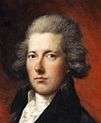 |
The Right Honourable William Pitt ‘the Younger’ MP for Appleby until 1784 MP for Cambridge University from 1784 (1759–1806) |
19 December 1783 |
14 March 1801 |
– First Lord of the Treasury – Chancellor of the Exchequer – Leader of the House of Commons |
Tory (Pittite) |
Pitt I | [27] | ||
| Son of 1st Earl of Chatham (aka Pitt the Elder). Youngest Prime Minister, aged 24. Pitt had lost a vote of confidence in 1784, but refused to follow precedent and called an early election; India Act 1784; attempted to remove rotten boroughs; personally opposed to slave trade; reduced national debt due to rebellion in the North American colonies; formed the Triple Alliance; Constitutional Act 1791; Macartney Embassy (1792–94, the first of its kind to China); war with France commences in 1793; Cape Colony (now South Africa) taken in 1795; introduced the first income tax; Acts of Union 1800; first nationwide census held (Census Act 1800) in March 1801. Due to opposition of the King to Catholic emancipation, Pitt resigned. | |||||||||
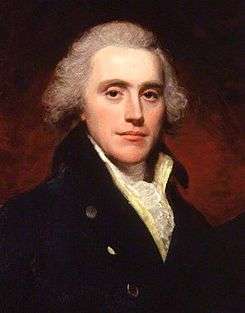 |
The Right Honourable Henry Addington MP for Devizes (1757–1844) |
17 March 1801 |
10 May 1804 |
– First Lord of the Treasury – Chancellor of the Exchequer – Leader of the House of Commons |
Tory (Pittite) |
Addington | [12] | ||
| Previously Speaker of the House of Commons from 1789. Negotiated the Treaty of Amiens with France in 1802. Despite Addington having been Pitt's chosen successor, inviting Pitt hitherto to join as a government minister, Pitt went into opposition and ousted Addington. | |||||||||
 |
The Right Honourable William Pitt ‘the Younger’ MP for Cambridge University (1759–1806) |
10 May 1804 |
23 January 1806† |
– First Lord of the Treasury – Chancellor of the Exchequer – Leader of the House of Commons |
Tory (Pittite) |
Pitt II | [12] | ||
| — | |||||||||
| Alliance with Russia, Austria and Sweden (Third Coalition) against France, lasting until the Battles of Ulm and Austerlitz; Battle of Trafalgar. †Died in office. | |||||||||
 |
The Right Honourable William Grenville, 1st Baron Grenville PC FRS (1759–1834) |
11 February 1806 |
31 March 1807 |
– First Lord of the Treasury – Leader of the House of Lords |
Whig | Ministry of All the Talents | [12] | ||
| 1806 | |||||||||
| Son of George Grenville and cousin of Pitt the Younger. Third and most recent Speaker of the House of Commons to become Prime Minister. Abolition of the slave trade. | |||||||||
 |
His Grace William Cavendish-Bentinck, 3rd Duke of Portland KG PC FRS (1738–1809) |
31 March 1807 |
4 October 1809 |
– First Lord of the Treasury | Tory (nominally Whig) |
Portland II | [12] | ||
| 1807 | |||||||||
| Although Portland identified yet as a Whig politician, he was invited to head a Tory government. Was old and ill, leaving his Cabinet to their own devices, largely headed by his Chancellor (Spencer Perceval). Ministry destabilised through multiple disputes between the Foreign Secretary (George Canning) and the War and Colonies Secretary (Viscount Castlereagh), that eventually culminated by way of a duel; Portland resigned in response (dying 26 days after leaving office). | |||||||||
 |
The Right Honourable Spencer Perceval KC MP for Northampton (1762–1812) |
4 October 1809 |
11 May 1812† |
– First Lord of the Treasury – Chancellor of the Exchequer – Chancellor of the Duchy of Lancaster – Leader of the House of Commons |
Tory | Perceval | [28] | ||
| — | |||||||||
| Two-greats-nephew of Wilmington. His ministry was notable for the lack of senior politicians (note four concurrent offices served); descent of the King into madness, and outset of the Regency era under Prince George (serving as Regent from 1811); Peninsular War (Napoleonic Wars). †Only Prime Minister to be assassinated, shot by John Bellingham. | |||||||||
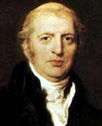 |
The Right Honourable Robert Jenkinson, 2nd Earl of Liverpool KG PC FRS (1770–1828) |
8 June 1812 |
9 April 1827 |
– First Lord of the Treasury – Leader of the House of Lords |
Tory | Liverpool | [29] | ||
| Oversaw UK victory in the Napoleonic Wars; War of 1812, Anglo-American War (fought until 1815); Congress of Vienna; economic recession in 1817; Luddite movement; Peterloo Massacre; returned the UK to the gold standard, following an earlier victory in 1818 over the Marathas in the Third Anglo-Maratha War; close of the Regency era, and the Cato Street Conspiracy (foiled attempt to assassinate Liverpool) in 1820. Retired upon suffering a cerebral haemorrhage; died the following year. | George IV (1820–1830) | ||||||||
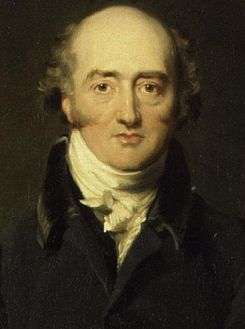 |
The Right Honourable George Canning FRS MP for Seaford (1770–1827) |
10 April 1827 |
8 August 1827† |
– First Lord of the Treasury – Chancellor of the Exchequer – Leader of the House of Commons |
Tory (Canningite) |
Canning (Canningite–Whig) |
[12] | ||
| — | |||||||||
| To date the shortest-serving Prime Minister. †Died shortly after taking office. | |||||||||
 |
The Right Honourable Frederick John Robinson, 1st Viscount Goderich PC (1782–1859) |
31 August 1827 |
21 January 1828 |
– First Lord of the Treasury – Leader of the House of Lords |
Tory (Canningite) |
Goderich (Canningite–Whig) |
[12] | ||
| — | |||||||||
| Lacked support amongst colleagues. Resigned shortly after taking office. | |||||||||
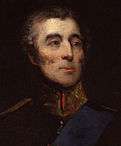 |
Field Marshal His Grace Arthur Wellesley, 1st Duke of Wellington KG GCB GCH PC (1769–1852) |
22 January 1828 |
16 November 1830 |
– First Lord of the Treasury – Leader of the House of Lords |
Tory | Wellington | [12] | ||
| 1830 | William IV (1830–1837) | ||||||||
| Second Irish-born Prime Minister and second veteran general of only two Prime Ministers (in both cases following Shelburne); Catholic Emancipation Bill (over which Wellington fought a duel). Resigned after a vote of no confidence. | |||||||||
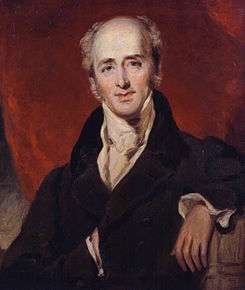 |
The Right Honourable Charles Grey, 2nd Earl Grey KG PC (1764–1845) |
22 November 1830 |
9 July 1834 |
– First Lord of the Treasury – Leader of the House of Lords |
Whig | Grey | [30] | ||
| Reform Act 1832; quelled Swing Riots; employment of children restricted; reform of the Poor Laws; abolition of slavery throughout the British Empire. | |||||||||
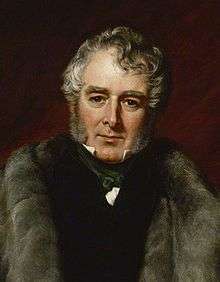 |
The Right Honourable William Lamb, 2nd Viscount Melbourne PC (1779–1848) |
16 July 1834 |
14 November 1834 |
– First Lord of the Treasury – Leader of the House of Lords |
Whig | Melbourne I | [31] | ||
| — | |||||||||
| Last Prime Minister to be dismissed by the Sovereign shortly after taking office. Burning of Parliament befalls in October 1834, following which the Palace of Westminster was rebuilt in its present form. | |||||||||
 |
Field Marshal His Grace Arthur Wellesley, 1st Duke of Wellington KG GCB GCH PC (1769–1852) |
14 November 1834 |
10 December 1834 |
– First Lord of the Treasury – Secretary of State for the Home Department – Secretary of State for Foreign Affairs – Secretary of State for War and the Colonies – Leader of the House of Lords |
Tory | Wellington Caretaker | [32] | ||
| — | |||||||||
| Caretaker government while Sir Robert Peel was located and returned to London. Had concurrently held many of the major posts himself, becoming the only Prime Minister to serve also as Home Secretary. | |||||||||
 |
The Right Honourable Sir Robert Peel, Bt FRS MP for Tamworth (1788–1850) |
10 December 1834 |
8 April 1835 |
– First Lord of the Treasury – Chancellor of the Exchequer – Leader of the House of Commons |
Conservative | Peel I | [33] [34] | ||
| 1835§ | |||||||||
| §Minority government. Unable to form a majority in Parliament so resigned (following a vote of no confidence). | |||||||||
 |
The Right Honourable William Lamb, 2nd Viscount Melbourne PC FRS (1779–1848) |
18 April 1835 |
30 August 1841 |
– First Lord of the Treasury – Leader of the House of Lords |
Whig | Melbourne II | [35] | ||
|
Victoria%2C_Carl_Rudolph_Sohn%2C_1883.jpg) (1837–1901) | ||||||||
| Returned by re-election after royal dismissal, and a father figure to the new Queen; Municipal Corporations Act 1835; Bedchamber crisis; Uniform Penny Post; Treaty of Waitangi. Resigned having twice lost votes of confidence, in June and August 1841. | |||||||||
 |
The Right Honourable Sir Robert Peel, Bt FRS MP for Tamworth (1788–1850) |
30 August 1841 |
29 June 1846 |
– First Lord of the Treasury – Leader of the House of Commons |
Conservative | Peel II | [36] | ||
| 1841 | |||||||||
| Mines Act 1842; reintroduction of income tax; Factories Act 1844; Railway Regulation Act 1844; repeal of the Corn Laws (triggered by the Great Irish Potato Famine) and other tariffs; Maynooth Grant. Resigned after a vote of no confidence. | |||||||||
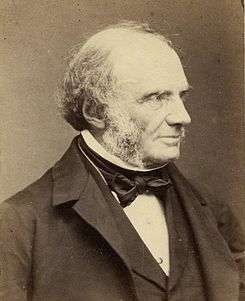 |
The Right Honourable Lord John Russell GCMG PC FRS MP for City of London (1792–1878) |
30 June 1846 |
21 February 1852 |
– First Lord of the Treasury – Leader of the House of Commons |
Whig | Russell I | [37] | ||
| 1847§ | |||||||||
| §Minority government (but with Conservatives split between the Protectionists and Peelites, the Whigs held power). Education Act 1847; Don Pacifico affair; Chartist demonstrations; Australian Colonies Government Act; Great Exhibition; improved the Poor laws; ministry ended by a vote of no confidence on a militia bill, having previously lost a vote of confidence on enfranchisement in 1851. | |||||||||
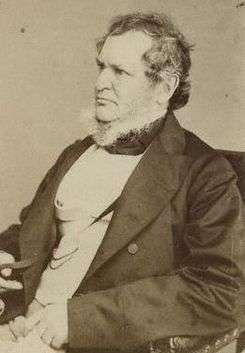 |
The Right Honourable Edward Smith-Stanley, 14th Earl of Derby PC (1799–1869) |
23 February 1852 |
17 December 1852 |
– First Lord of the Treasury – Leader of the House of Lords |
Conservative | Derby I (‘Who? Who?’) |
[38] | ||
| 1852 | |||||||||
| Considered by some to be the father of the modern Conservative party. Government collapsed when the Budget of his Chancellor (Benjamin Disraeli) was defeated; Derby resigned after a vote of no confidence. | |||||||||
 |
The Right Honourable George Hamilton-Gordon, 4th Earl of Aberdeen KG KT FRSE FRS PC FSA Scot (1784–1860) |
19 December 1852 |
30 January 1855 |
– First Lord of the Treasury – Leader of the House of Lords |
Peelite | Aberdeen (Peelite–Whig) |
[39] | ||
| — | |||||||||
| Led the UK into the Crimean War. Resigned after losing a vote of confidence in a vote for an inquiry into the war's conduct. | |||||||||
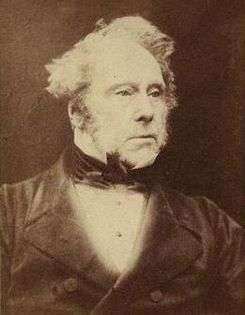 |
The Right Honourable Henry John Temple, 3rd Viscount Palmerston KG GCB PC FRS MP for Tiverton (1784–1865) |
6 February 1855 |
19 February 1858 |
– First Lord of the Treasury – Leader of the House of Commons |
Whig | Palmerston I | [40] | ||
| 1857 | |||||||||
| An Irish peer (enabling him to sit in the House of Commons). Responded to the Indian Rebellion of 1857; introduced the India Bill; Crimean War concludes. Having lost a vote of confidence, Palmerston resigned. | |||||||||
 |
The Right Honourable Edward Smith-Stanley, 14th Earl of Derby KG PC (1799–1869) |
20 February 1858 |
11 June 1859 |
– First Lord of the Treasury – Leader of the House of Lords |
Conservative | Derby II | [41] | ||
| — | |||||||||
| Government of India Act 1858 transfers EIC ownership to the Crown; Jews Relief Act (allowing Jews to become MPs). Resigned after a vote of no confidence. | |||||||||
 |
The Right Honourable Henry John Temple, 3rd Viscount Palmerston KG GCB PC FRS MP for Tiverton (1784–1865) |
12 June 1859 |
18 October 1865† |
– First Lord of the Treasury – Leader of the House of Commons |
Liberal | Palmerston II | [42] | ||
| Three days before assuming office, Palmerston founded the Liberal Party. His ministry was largely dominated by policy concerning the American Civil War; attempted to alleviate suffering caused by the Lancashire Cotton Famine. †Died in office (last and oldest Prime Minister to have done so). | |||||||||
 |
The Right Honourable John Russell, 1st Earl Russell KG GCMG PC FRS (1792–1878) |
29 October 1865 |
26 June 1866 |
– First Lord of the Treasury – Leader of the House of Lords |
Liberal | Russell II | [43] | ||
| — | |||||||||
| Returned to take over Government after Palmerston died in office. Only Prime Minister to serve separate terms of office respectively from the Houses of Commons (previous term) and the Lords (this term). Attempted to introduce a further Reform Bill, but was opposed by Cabinet. Resigned after a vote of no confidence. | |||||||||
 |
The Right Honourable Edward Smith-Stanley, 14th Earl of Derby KG PC (1799–1869) |
28 June 1866 |
25 February 1868 |
– First Lord of the Treasury – Leader of the House of Lords |
Conservative | Derby III | [44] | ||
| — | |||||||||
| Reform Act 1867. Canada becomes the first Dominion within the British Empire. | |||||||||
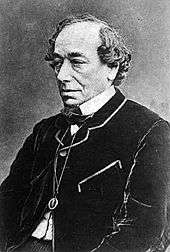 |
The Right Honourable Benjamin Disraeli MP for Buckinghamshire (1804–1881) | ||||||||
| Disraeli Premierships | – First Lord of the Treasury – Leader of the House of Commons |
Conservative | Disraeli I | [45] | |||||
| 27 February 1868 |
1 December 1868 | ||||||||
| — | |||||||||
| Only ethnically Jewish Prime Minister. Disraeli later dissolved Parliament as the Conservatives did not enjoy a majority. | |||||||||
 |
The Right Honourable William Ewart Gladstone FSS MP for Greenwich (1809–1898) | ||||||||
| Gladstone Premierships | – First Lord of the Treasury – Leader of the House of Commons – Chancellor of the Exchequer from 1873 |
Liberal | Gladstone I | [46] | |||||
| 3 December 1868 |
17 February 1874 | ||||||||
| 1868 | |||||||||
| Introduced reforms to the British Army, Civil Service and local government; made peacetime flogging illegal; Irish Church Act 1869; Irish Land Act 1870; Education Act 1870; Trade Union Act 1871; Ballot Act 1872; Licensing Act 1872; failed to prevent the Franco-Prussian War (refusing military intervention); allowed mitigation of the Bihar famine of 1873–74. Resigned having lost an 1873 vote of confidence. | |||||||||
 |
The Right Honourable Benjamin Disraeli, 1st Earl of Beaconsfield KG PC FRS MP for Buckinghamshire until 1876 Earl of Beaconsfield from 1876 (1804–1881) |
20 February 1874 |
21 April 1880 |
– First Lord of the Treasury – Leader of the House of Commons until 1876 – Lord Privy Seal 1876–1878 – Leader of the House of Lords from 1876 |
Conservative | Disraeli II | [47] | ||
| 1874 | |||||||||
| Last Prime Minister to be raised from the House of Commons to the Lords in office. Social reforms encompass the Climbing Boys Act, the Public Health Act and the Artisans' Dwellings Act 1875. Great Indian Famine of 1876–78; purchase of shares in the Suez Canal Company; Congress of Berlin; reintroduction of the Queen to public life (bestowing her the title Empress of India, in 1876); Second Anglo-Afghan War; breaking up of the League of the Three Emperors; Zulu War; outset of the Long Depression. | |||||||||
 |
The Right Honourable William Ewart Gladstone FRS FSS MP for Midlothian (1809–1898) |
23 April 1880 |
9 June 1885 |
– First Lord of the Treasury – Leader of the House of Commons – Chancellor of the Exchequer 1880–1882 |
Liberal | Gladstone II | [48] | ||
| 1880 | |||||||||
| First Prime Minister representing a Scottish constituency in office. Battle of Kandahar ends the Anglo-Afghan War; First Boer War; Childers Reforms of the Army; Irish Coercion Act; Kilmainham Treaty; Phoenix Park Murders; Married Women's Property Act 1882; Corrupt and Illegal Practices Prevention Act 1883; Reform Act 1884 (known as the "Third" Reform Act) and the Redistribution of Seats Act 1885; failure to rescue General Gordon in Sudan. Resigned after a vote of no confidence. | |||||||||
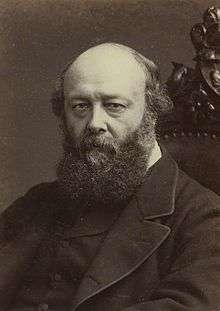 |
The Most Honourable Robert Gascoyne-Cecil, 3rd Marquess of Salisbury KG GCVO PC FRS (1830–1903) |
23 June 1885 |
28 January 1886 |
– Secretary of State for Foreign Affairs – Leader of the House of Lords |
Conservative | Salisbury I | [49] | ||
| 1885§ | |||||||||
| §Minority government. Legislation provided for housing the working class. 1st Earl of Iddesleigh served as First Lord of the Treasury from 29 June. Resigned after a vote of no confidence. | |||||||||
 |
The Right Honourable William Ewart Gladstone FRS FSS MP for Midlothian (1809–1898) |
1 February 1886 |
20 July 1886 |
– First Lord of the Treasury – Lord Privy Seal – Leader of the House of Commons |
Liberal | Gladstone III | [50] | ||
| 1885 | |||||||||
| First introduction of the Home Rule Bill for Ireland (splitting the Liberal Party, and losing a vote of confidence). | |||||||||
 |
The Most Honourable Robert Gascoyne-Cecil, 3rd Marquess of Salisbury KG GCVO PC FRS (1830–1903) |
25 July 1886 |
11 August 1892 |
– Leader of the House of Lords – First Lord of the Treasury 1886–1887 – Secretary of State for Foreign Affairs from 1887 |
Conservative | Salisbury II | [51] | ||
| 1886 | |||||||||
| Opposed Irish home rule; repeal of final Contagious Diseases Act; Local Government Act 1888; Partition of Africa; Prevention of Cruelty to, and Protection of, Children Act 1889; Free Education Act 1891; creation of Rhodesia (now Zimbabwe); New Unionism, and London Dock strike of 1889. William Henry Smith served as First Lord of the Treasury from 1887, and was replaced with Arthur Balfour in 1891. Resigned after a vote of no confidence. | |||||||||
 |
The Right Honourable William Ewart Gladstone FRS FSS MP for Midlothian (1809–1898) |
15 August 1892 |
2 March 1894 |
– First Lord of the Treasury – Lord Privy Seal – Leader of the House of Commons |
Liberal | Gladstone IV | [52] | ||
| 1892§ | |||||||||
| §Minority government. Reintroduction of the Home Rule Bill (which was passed by the House of Commons, but rejected by the Lords leading to his fourth and final resignation). Gladstone is to date the oldest Prime Minister ever to be elected. | |||||||||
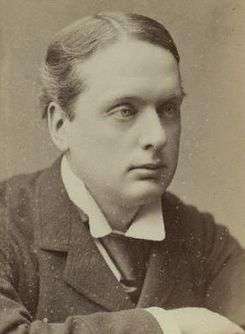 |
The Right Honourable Archibald Primrose, 5th Earl of Rosebery KG PC FRS (1847–1929) |
5 March 1894 |
22 June 1895 |
– First Lord of the Treasury – Lord President of the Council – Leader of the House of Lords |
Liberal | Rosebery | [53] | ||
| — | |||||||||
| Was a Liberal Imperialist, plans for Royal Navy expansion caused contention among Liberals. Defeated in a vote of confidence regarding military supplies (specifically Cordite), Rosebery resigned. | |||||||||
 |
The Most Honourable Robert Gascoyne-Cecil, 3rd Marquess of Salisbury KG GCVO PC FRS (1830–1903) |
25 June 1895 |
11 July 1902 |
– Leader of the House of Lords – Secretary of State for Foreign Affairs 1895–1900 – Lord Privy Seal from 1900 |
Conservative | Salisbury III (Cons.–Lib.U.) |
[54] | ||
Edward VII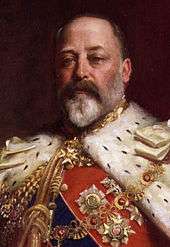 (1901–1910) | |||||||||
| Workmen's Compensation Act 1897; Anglo-Zanzibar War; Fashoda Incident; Second Boer War and Khaki election; Anglo-Japanese Alliance. Last Prime Minister to serve office entirely from the House of Lords, throughout terms. Resigned due to ill health; died the following year. | |||||||||
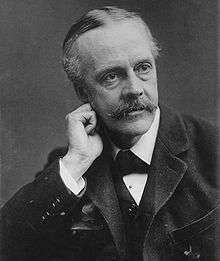 |
The Right Honourable Arthur Balfour OM FRS DL MP for Manchester East (1848–1930) |
11 July 1902 |
5 December 1905 |
– First Lord of the Treasury – Leader of the House of Commons |
Conservative | Balfour (Cons.–Lib.U.) |
[12] | ||
| — | |||||||||
| Nephew (via mother) of Salisbury. Experienced strained relations with the King, and his Cabinet split over free trade. Establishment of the Committee of Imperial Defence; "Entente Cordiale", with France; Education Act 1902; Taff Vale case; Dogger Bank incident. | |||||||||
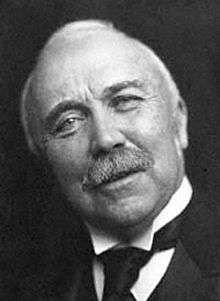 |
The Right Honourable Sir Henry Campbell-Bannerman GCB MP for Stirling Burghs (1836–1908) |
5 December 1905 |
7 April 1908 |
– First Lord of the Treasury – Leader of the House of Commons |
Liberal | Campbell-Bannerman | [12] | ||
| 1906 | |||||||||
| Restored autonomy to Transvaal and the Orange Free State; Anglo-Russian Entente; Haldane Reforms of the Army; Probation Act 1907. Was the first Prime Minister to be referred to as such in formal Parliamentary legislation. Resigned due to ill health; died 19 days after leaving office. | |||||||||
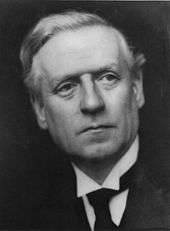 |
The Right Honourable Herbert Henry Asquith KC FRS MP for East Fife (1852–1928) |
7 April 1908 |
25 May 1915 |
– First Lord of the Treasury – Leader of the House of Commons – Secretary of State for War 1914 |
Liberal | Asquith I | [12] | ||
| 25 May 1915 |
6 December 1916 |
Asquith II (Lib.–Cons.–Lab.) |
George V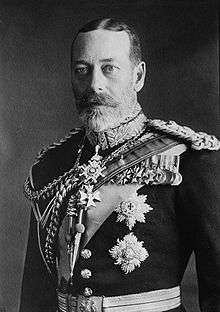 (1910–1936) | ||||||
| §Hung Parliaments. Liberal welfare reforms; People's Budget; Old-Age Pensions Act 1908; National Insurance Act 1911; Parliament Act 1911; suffragette movement and the Cat and Mouse Act; Home Rule Act 1914; First World War commences; Easter Rising. Last Prime Minister to concurrently serve as War Secretary, between the Curragh incident and the Great War outbreak. | |||||||||
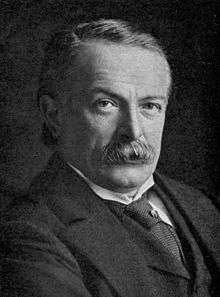 |
The Right Honourable David Lloyd George OM MP for Caernarvon Boroughs (1863–1945) |
6 December 1916 |
19 October 1922 |
– First Lord of the Treasury | Liberal | Lloyd George (Lib.–Cons.–Lab.) |
[55] | ||
| 1918 | |||||||||
| Welsh-speaking: only Prime Minister whose mother tongue was not English and first to represent a Welsh constituency while in office. First World War concludes with the US associated with the Allies, and Allied intervention in the Russian Civil War; all adult males and women over 30 years of age enfranchised in 1918. Paris Peace Conference; aided in ending the Irish War of Independence and the establishment of the Irish Free State, by means of the 1921 Anglo-Irish Treaty. Geddes's Axe; League of Nations (LN) instituted; BBC incorporated; Chanak Crisis. Last Prime Minister who was neither Conservative nor Labour. | |||||||||
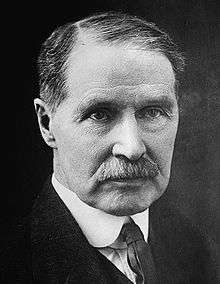 |
The Right Honourable Bonar Law MP for Glasgow Central (1858–1923) |
23 October 1922 |
20 May 1923 |
– First Lord of the Treasury – Leader of the House of Commons |
Conservative | Law | [56] | ||
| 1922 | |||||||||
| Canadian-born: only Prime Minister born outside the British Isles. Became Prime Minister following Conservative backbenchers' decision (at the Carlton Club meeting) to withdraw from the Lloyd George Coalition; shortest premiership of the 20th century (211 days). Resigned due to ill health; died six months after leaving office. | |||||||||
 |
The Right Honourable Stanley Baldwin MP for Bewdley (1867–1947) |
23 May 1923 |
16 January 1924 |
– First Lord of the Treasury – Leader of the House of Commons – Chancellor of the Exchequer 1923 |
Conservative | Baldwin I | [57] | ||
| — | |||||||||
| Last Prime Minister concurrently Chancellor of the Exchequer. Called a general election to gain a mandate for protectionist tariffs, but failed to gain a majority. Resigned after a vote of no confidence. | |||||||||
 |
The Right Honourable Ramsay MacDonald MP for Aberavon (1866–1937) |
22 January 1924 |
4 November 1924 |
– First Lord of the Treasury – Leader of the House of Commons – Secretary of State for Foreign Affairs |
Labour | MacDonald I | [58] | ||
| 1923§ | |||||||||
| §Hung parliament; minority government reliant on Liberal support. First Labour Prime Minister (but did not enjoy a majority, so could not introduce radical legislation). Last Prime Minister also serving as Foreign Secretary; settled reparations with Germany as part of First World War aftermath; Zinoviev letter. Resigned after a vote of no confidence. | |||||||||
 |
The Right Honourable Stanley Baldwin FRS MP for Bewdley (1867–1947) |
4 November 1924 |
5 June 1929 |
– First Lord of the Treasury – Leader of the House of Commons |
Conservative | Baldwin II | [59] | ||
| 1924 | |||||||||
| Locarno Treaties; Kellogg–Briand Pact; Pensions Act 1925; 1926 general strike; National Grid founded; enfranchisement of women over 21. | |||||||||
 |
The Right Honourable Ramsay MacDonald FRS MP for Seaham (1866–1937) |
5 June 1929 |
24 August 1931 |
– First Lord of the Treasury – Leader of the House of Commons |
Labour | MacDonald II | [60] | ||
| 24 August 1931 |
7 June 1935 |
National Labour | 1st National; 2nd National (Lab.Nat.–Cons.–Lib.Nat. –Lib. until 1932) | ||||||
| §Hung parliament. Appointed the first female minister, Margaret Bondfield; economic crises, following the Wall Street Crash of 1929. In 1931 his Labour government split on measures to resolve a budget crisis; MacDonald resigned but was reappointed at the head of a National Government (with support of the Conservative and Liberal parties). He was subsequently expelled from the Labour Party; the National Government fought and won a general election on the basis of a "Doctor's Mandate". With the Ottawa Conference favouring protectionism, his free trade ministers (the Liberals and 1st Viscount Snowden) resigned in protest. Motoring legislation reformed by Road Traffic Acts 1930 and 1934. | |||||||||
 |
The Right Honourable Stanley Baldwin FRS MP for Bewdley (1867–1947) |
7 June 1935 |
28 May 1937 |
– First Lord of the Treasury – Leader of the House of Commons |
Conservative | 3rd National (Cons.–Lab.Nat.–Lib.Nat.) |
[61] | ||
| 1935 | Edward VIII (1936) | ||||||||
| Government of India Act 1935; Edward VIII abdication crisis; started re-armament but later criticised for failing to rearm more when Adolf Hitler of Nazi Germany broke his Treaty of Versailles obligations. Only Prime Minister to serve three monarchs, from George V, Edward VIII to George VI. | George VI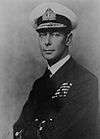 (1936–1952) | ||||||||
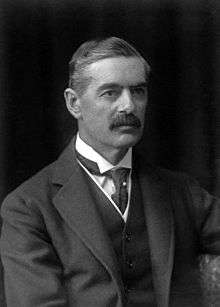 |
The Right Honourable Neville Chamberlain FRS MP for Birmingham Edgbaston (1869–1940) |
28 May 1937 |
3 September 1939 |
– First Lord of the Treasury – Leader of the House of Commons |
Conservative | 4th National (Cons.–Lab.Nat.–Lib.Nat.) |
[12] | ||
| 3 September 1939 |
10 May 1940 |
Chamberlain War (Cons.–Lab.Nat.–Lib.Nat.) | |||||||
| — | |||||||||
| 1939 IRA bombings in England; attempted to maintain peace for our time through appeasement of Germany (Munich Agreement); widely criticised following the German invasion of Poland and consequent outbreak of the Second World War. Resigned due to personal inability in brokering a cross-party coalition agreement; died six months after leaving office. | |||||||||
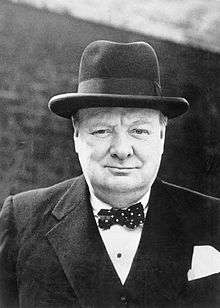 |
The Right Honourable Winston Churchill CH TD DL FRS RA MP for Epping (1874–1965) |
10 May 1940 |
23 May 1945 |
– First Lord of the Treasury – Minister of Defence – Leader of the House of Commons until 1942 |
Conservative | Churchill War (All parties) |
[62] [63] | ||
| 23 May 1945 |
26 July 1945 |
Churchill Caretaker (Cons.–Lib.Nat.) | |||||||
| — | |||||||||
| World War continues; formed military alliances with both the US and the Soviet Union, and reactively declared war on Fascist Italy and Japan (while successfully leading an all-party War Coalition). United Nations founded, replacing the LN; proposed what would eventually lead to the European Union (EU); Beveridge Report and Butler Education Act. After VE Day, Churchill formed a new ministry (the so-called "Caretaker Ministry") consisting of Conservatives, Liberal Nationals and independent government ministers; it was subsequently defeated after two months. | |||||||||
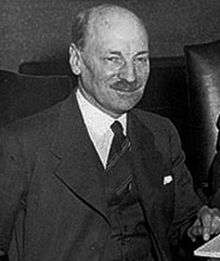 |
The Right Honourable Clement Attlee OM CH FRS MP for Limehouse until 1950 MP for Walthamstow West from 1950 (1883–1967) |
26 July 1945 |
26 October 1951 |
– First Lord of the Treasury – Minister of Defence 1945–1946 |
Labour | Attlee | [64] | ||
| Victory over Japan ends the World War; Potsdam Conference; post-war consensus established; introduced nationalisation of the Bank of England and utilities; foundation of the National Health Service; extended National Insurance scheme; economic austerity, characterised by continued and deepened wartime food and fuel rationing; independence of India; end to the UK role in Palestine; foundation of NATO; beginning of the Cold War; Berlin Blockade and the resulting Airlift; National Service Act 1948, reinstating conscription; start of UK involvement in the Korean War. | |||||||||
 |
The Right Honourable Sir Winston Churchill KG OM CH TD DL FRS RA MP for Woodford (1874–1965) |
26 October 1951 |
6 April 1955 |
– First Lord of the Treasury – Minister of Defence 1951–1952 |
Conservative | Churchill III | [65] | ||
| 1951 | Elizabeth II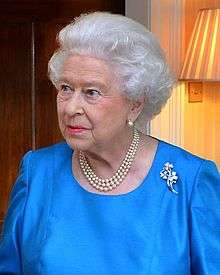 (1952–present) | ||||||||
| Last Prime Minister to be concurrently Minister of Defence. Domestic policy (notably end of rationing) interrupted by foreign disputes (Korean War; Operation Ajax; Mau Mau Uprising; Malayan Emergency). Coronation of Queen Elizabeth II. Having suffered a stroke in 1953, Churchill continued in office in the hope of achieving a summit with the new leadership of the USSR under Khrushchev, until finally resigning nearly two years later. | |||||||||
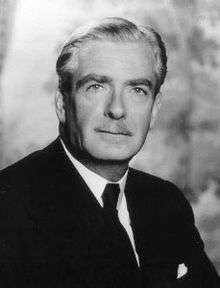 |
The Right Honourable Sir Anthony Eden KG MC MP for Warwick and Leamington (1897–1977) |
6 April 1955 |
10 January 1957 |
– First Lord of the Treasury | Conservative | Eden | [66] | ||
| 1955 | |||||||||
| Oversaw Egyptian nationalisation of the Suez Canal, an action that sparked the Suez Crisis; Premium Bonds introduced. Resigned on grounds of ill health and having lost the confidence of his senior colleagues. | |||||||||
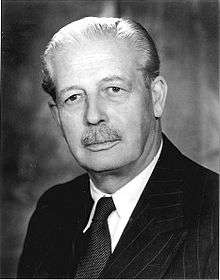 |
The Right Honourable Harold Macmillan FRS MP for Bromley (1894–1986) |
10 January 1957 |
19 October 1963 |
– First Lord of the Treasury | Conservative | Macmillan | [67] | ||
| 1959 | |||||||||
| The UK applied to join the European Economic Community for the first time, the application split Conservatives and was vetoed by France; acceptance of Keynesianism; First Cod War; Rent Act 1957; "Wind of Change" speech; Notting Hill race riots and New Commonwealth immigration; opening of the BBC Television Centre; end of National Service; Beeching cuts begin; Night of the Long Knives; Cuban Missile Crisis; Profumo affair, following which Macmillan resigned due to ill health. | |||||||||
.jpg) |
The Right Honourable Sir Alec Douglas-Home KT Earl of Home until 1963 MP for Kinross and Western Perthshire from 1963 (1903–1995) |
19 October 1963 |
16 October 1964 |
– First Lord of the Treasury | Conservative | Douglas-Home | [68] | ||
| — | |||||||||
| Last Prime Minister to hold office by virtue of the House of Lords (was 14th Earl of Home when becoming Prime Minister). Home renounced his peerage four days after being appointed, in order to stand for the Commons. Oversaw the independence of the colony of Nyasaland; abolition of Resale Price Maintenance. | |||||||||
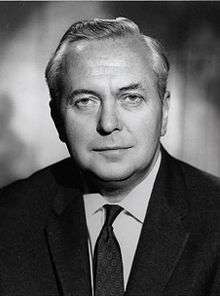 |
The Right Honourable Harold Wilson OBE FRS MP for Huyton (1916–1995) |
16 October 1964 |
19 June 1970 |
– First Lord of the Treasury – Minister for the Civil Service from 1968 |
Labour | Wilson I | [69] | ||
| Social reforms encompass the legalisation of abortion, abolition of capital punishment and decriminalisation of homosexuality. Colony Northern Rhodesia receives independence, and Rhodesian UDI; Wilson Doctrine; began depopulation of Chagossians from the Chagos Archipelago; adopted, but then abandoned, a National Plan for the economy; devaluation of the pound in 1967; foundation of the Open University; government disputes with trade unions over "In Place of Strife" and prices and incomes policy; ordered troops into Northern Ireland in response to start of Troubles. | |||||||||
| |
The Right Honourable Edward Heath MBE MP for Bexley (1916–2005) |
19 June 1970 |
4 March 1974 |
– First Lord of the Treasury – Minister for the Civil Service |
Conservative | Heath | [70] | ||
| 1970 | |||||||||
| U-turns over economic policy and intervention in industry; negotiated UK entry to the EEC; violence due to NI Troubles peaked (Bloody Sunday); completed Chagos Archipelago depopulation; Sunningdale Agreement; Three-Day Week; Misuse of Drugs Act 1971; introduction of VAT; Second Cod War. Called an early general election in an attempt to confront the National Union of Mineworkers' (NUM) strike. Last unmarried Prime Minister. | |||||||||
 |
The Right Honourable Harold Wilson OBE FRS MP for Huyton (1916–1995) |
4 March 1974 |
5 April 1976 |
– First Lord of the Treasury – Minister for the Civil Service |
Labour | Wilson II | [71] | ||
| §Hung parliament. Ended dispute with the NUM (Social Contract negotiated with unions over the economy); Health and Safety at Work Act; renegotiated UK terms for EC membership and then won a 1975 referendum to validate entry; North Sea oil discovery; Third Cod War commences. Resigned due to ill health. | |||||||||
| |
The Right Honourable James Callaghan MP for Cardiff South East (1912–2005) |
5 April 1976 |
4 May 1979 |
– First Lord of the Treasury – Minister for the Civil Service |
Labour | Callaghan | [72] [73] | ||
| — | |||||||||
| International Monetary Fund loan to support the pound (1976 IMF Crisis); Third Cod War lost; Race Relations Act 1976; Lib–Lab pact; enacted a devolution proposal to Scotland and Wales, but insufficient referenda stopped them; breakdown of relations with unions and hence the Winter of Discontent. Was forced to call a general election after losing a vote of no confidence. To date, Callaghan is the only politician to have served in each of the Great Offices of State. (He is also the last armed forces veteran Prime Minister.) | |||||||||
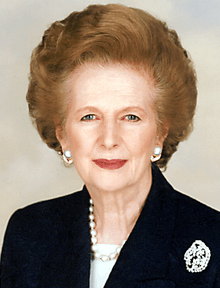 |
The Right Honourable Margaret Thatcher FRS MP for Finchley (1925–2013) | ||||||||
| Thatcher Premiership | – First Lord of the Treasury – Minister for the Civil Service |
Conservative | Thatcher |
[74] [75] | |||||
| 4 May 1979 |
28 November 1990 | ||||||||
| First female Prime Minister. Thatcher extinguished the post-war consensus, against much opposition and controversy. Iranian Embassy siege; 1981 Irish hunger strike; Falklands War; sold council housing to tenants (Right to Buy); 1984–85 miners' strike; privatisation of many previously government-owned industries; decreased power of unions; negotiation of a UK rebate towards EC budget; Brighton hotel bombing (failed attempt to assassinate Thatcher); Sino-British Joint Declaration; Anglo-Irish Agreement; Westland affair; abolition of the Greater London Council; Big Bang (financial markets); Section 28; Community Charge and the Poll Tax riots; Lockerbie bombing; Gulf War commences. Resigned after failing to win outright against a challenge to her party leadership. | |||||||||
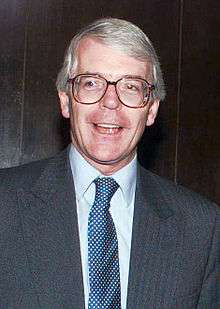 |
The Right Honourable John Major MP for Huntingdon (born 1943) |
28 November 1990 |
2 May 1997 |
– First Lord of the Treasury – Minister for the Civil Service |
Conservative | Major |
[76] [77] | ||
| 1992 | |||||||||
| Early 1990s recession; Operation Granby and the Downing Street mortar attack (Gulf War victory); Citizen's Charter; dissolution of the USSR (officially ending the Cold War); ratification of the Maastricht Treaty (and the Maastricht Rebels); annus horribilis for the Queen and forced exit from the Exchange Rate Mechanism (Black Wednesday) in 1992; Council Tax introduced; Downing Street Declaration (initiating the NI peace process); privatisation of British Rail. Major also introduced the National Lottery and permitted Sunday Shopping in 1994; the Cones Hotline in 1992 and the "Back to Basics" campaign in 1993; Dangerous Dogs Act. To date, Major is the last non-graduate Prime Minister. | |||||||||
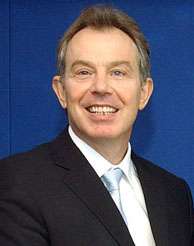 |
The Right Honourable Tony Blair MP for Sedgefield (born 1953) | ||||||||
| Blair Premiership | – First Lord of the Treasury – Minister for the Civil Service |
Labour | Blair | [78] [79] | |||||
| 2 May 1997 |
27 June 2007 | ||||||||
| Hong Kong Handover (to China); death of Diana, Princess of Wales; independence for the Bank of England; Ecclestone tobacco controversy; Belfast Agreement; Human Rights Act; devolution to Scotland and Wales; House of Lords reform; minimum wage introduced; NATO bombing of Yugoslavia; fuel protests; creation of the Greater London Authority and Mayoralty of London; Freedom of Information Act; UK military intervention in the Sierra Leone Civil War; 2001 foot and mouth outbreak; 11 September attacks on the US; War in Afghanistan; 2003 invasion of Iraq (and the consequent Iraq War); tuition (top-up) fees introduced; Civil Partnership Act 2004; Constitutional Reform Act; 2005 London bombings; Cash for Honours; Identity Cards Act 2006. Resignation purported as an eventual result of a deal between himself and his chancellor (Gordon Brown). | |||||||||
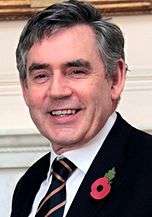 |
The Right Honourable Gordon Brown MP for Kirkcaldy and Cowdenbeath (born 1951) | ||||||||
| Brown Premiership | – First Lord of the Treasury – Minister for the Civil Service |
Labour | Brown | [80] | |||||
| 27 June 2007 |
11 May 2010 | ||||||||
| — | |||||||||
| Glasgow Airport attack; misplacement of child benefit data; Donorgate; Northern Rock and other banks nationalised; ratification of the Treaty of Lisbon; 10p tax rate abolished; financial crisis of 2007–08; cannabis moved back to Class B; parliamentary expenses scandal; release of Abdelbaset al-Megrahi; arrest of Damian Green; Chilcot Inquiry established. Last Prime Minister to choose date of a general election. | |||||||||
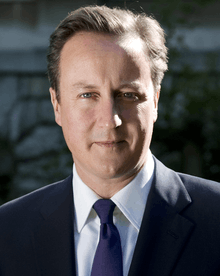 |
The Right Honourable David Cameron MP for Witney (born 1966) | ||||||||
| Cameron Premiership | – First Lord of the Treasury – Minister for the Civil Service |
Conservative | Cameron I (Cons.–Lib.Dem.) |
[81] | |||||
| 11 May 2010 |
8 May 2015 | ||||||||
| 8 May 2015 |
13 July 2016 |
Cameron II | |||||||
| §Hung parliament, forming the first coalition government since 1945. Bloody Sunday apology; Spending and Strategic Defence reviews (budget cuts to public services resulting in anti-austerity movement); 2010 student protests; Military intervention in Libya (Operation Ellamy); Alternative Vote referendum; Welfare Reform Act; Health and Social Care Act; 2011 riots; UK forces leave Iraq in 2011 and Afghanistan in 2014; veto of the European Fiscal Compact; London 2012 Summer Olympics; Belfast City Hall flag protests; same-sex marriage legalised; creation of the National Crime Agency; Woolwich attack; referendum on Scottish independence; privatisation of the Royal Mail; Westminster paedophile dossier; military intervention against ISIL in Iraq and in Syria (Operation Shader); European migrant crisis. Campaigned for Remain following a renegotiation of EU membership, in run-up to the 2016 referendum; Chilcot Inquiry publishes findings. When a 52% majority voted Leave, Cameron resigned. | |||||||||
.jpg) |
The Right Honourable Theresa May MP for Maidenhead (born 1956) | ||||||||
| May Premiership | – First Lord of the Treasury – Minister for the Civil Service |
Conservative | May | [1] | |||||
| 13 July 2016 |
Incumbent | ||||||||
| — | |||||||||
| Established post-Brexit departments: Exiting the European Union, to deal with the pending invocation of Article 50 of the Treaty, and the second directed at International Trade, to deal with trade globally after EU departure. | |||||||||
See also
- Downing Street
- Historical rankings of Prime Ministers of the United Kingdom
- List of Prime Ministers of the United Kingdom by tenure
- Living Prime Ministers of the United Kingdom
- Records of Prime Ministers of the United Kingdom
- Royal prerogative in the United Kingdom
- Thatcherism
- List of United Kingdom general elections
References
- 1 2 "Theresa May vows to be 'one nation' prime minister". BBC News. British Broadcasting Corporation. 13 July 2016. Retrieved 11 July 2016.
- ↑ Hennessy (2001), pp. 39–40
- ↑ Hansard, 29 April 1805
- ↑ Hansard, 20 March 1885 and 14 April 1885
- ↑ Marriott (1921), p. 85
- 1 2 Clarke (1993), p. 266
- ↑ Hennessy (2001), p. 39
- 1 2 "Parties and Prime Ministers". BBC News. British Broadcasting Corporation. 19 May 1998. Retrieved 12 October 2008.
- ↑ Rozenberg, Joshua (3 June 1998). "UK Politics: Talking Politics – Conventions of the constitution". BBC News. Retrieved 2 November 2008.
- ↑ Kreike, Emmanuel; Jordan, William Chester, eds. (2004). Corrupt histories. Rochester (N.Y.): University of Rochester Press. pp. xii & 167. ISBN 1-58046-173-5.
- ↑ Winton, Calhoun (1993). John Gay and the London theatre. Lexington, Ky.: Univ. Press of Kentucky. pp. 132–33. ISBN 0-8131-1832-8.
- 1 2 3 4 5 6 7 8 9 10 11 12 13 14 15 16 17 18 "PMs through history". The Daily Telegraph. London: Telegraph Media Group. 21 September 2007. Retrieved 16 October 2008.
- ↑ "Leaders of the House; Henry Pelham". Office and Ministers. Office of the Leader of the House of Commons. Archived from the original on 2 March 2009. Retrieved 16 October 2008.
- ↑ Byrn, edited by John D., ed. (2009). Naval courts martial, 1793–1815. Farnham, Surrey, England: Ashgate for the Navy Records Society. p. xviii. ISBN 978-0-7546-6781-0.
- ↑ H.S.Q, Henriques (2006). The Jews and the English law. Clark, N.J.: Lawbook Exchange. pp. 241–45. ISBN 1-58477-645-5.
- ↑ Chaurasia, Radhey Shyam (2002). History of modern India: 1707 A.D. upto [sic] 2000 A.D. New Delhi: Atlantic. pp. 21–25. ISBN 81-269-0085-7.
- ↑ Kulisheck, P.J. (1997). The Duke of Newcastle, 1693–1768, and Henry Pelham, 1694–1754: a bibliography. Westport, Conn.: Greenwood Press. pp. 207–08. ISBN 0-313-29501-8.
- ↑ Marston, Daniel (2001). The Seven Years' War. London: Osprey. pp. 11 & 26. ISBN 1-84176-191-5.
- ↑ Thal, Herbert Van, ed. (1975). The Prime Ministers: from Sir Robert Walpole to Edward Heath. New York: Stein and Day. pp. 93–102. ISBN 0812817389.
- ↑ Hibbert, Christopher (2000). George III: A Personal History. New York: Basic books. p. 27. ISBN 978-0465027248.
- ↑ Thomas (2002), pp. 66–94
- ↑ Thomas (2002), pp. 95–124
- ↑ Thomas (2002), pp. 125–147
- ↑ Thomas (2002), pp. 148–196
- ↑ Thomas (2002), pp. 197–218
- ↑ Clarke (1993), pp. 278–279
- ↑ Clarke (1993), p. 281
- ↑ Priestley (2002), p. 62
- ↑ Priestley (2002), p. 65
- ↑ Clarke (1993), pp. 293–294
- ↑ Black (2006), p. 180
- ↑ Anderson (1856), pp. 442–443
- ↑ Black (2006), pp. 180–181
- ↑ Clarke (1993), p. 294
- ↑ Longford (1998), p. 63
- ↑ Longford (1998), pp. 156–157
- ↑ Longford (1998), p. 187
- ↑ Longford (1998), pp. 228–231
- ↑ Longford (1998), p. 232
- ↑ Longford (1998), p. 246
- ↑ Longford (1998), p. 281
- ↑ Longford (1998), p. 282
- ↑ Longford (1998), p. 346
- ↑ Longford (1998), p. 351
- ↑ Longford (1998), p. 353
- ↑ Longford (1998), p. 357
- ↑ Longford (1998), p. 396
- ↑ Longford (1998), p. 433
- ↑ Hunt, William; Poole, Reginald Lane (1907). The Political History of England. Longmans, Green and co. p. 505.
- ↑ Longford (1998), p. 484
- ↑ Longford (1998), pp. 492–493
- ↑ Longford (1998), pp. 518–519
- ↑ Longford (1998), pp. 527–528
- ↑ Longford (1998), pp. 533–534
- ↑ Rose (1983), pp. 196–198
- ↑ Rose (1983), p. 265
- ↑ Rose (1983), p. 272
- ↑ Rose (1983), p. 326
- ↑ Rose (1983), p. 337
- ↑ Rose (1983), pp. 361, 373–374
- ↑ Rose (1983), p. 398
- ↑ Hennessy (2001), p. 179
- ↑ Hennessy (2001), p. 158
- ↑ Hennessy (2001), p. 147
- ↑ Hennessy (2001), p. 178
- ↑ Hennessy (2001), p. 207
- ↑ Hennessy (2001), p. 248
- ↑ Hennessy (2001), p. 272
- ↑ Hennessy (2001), p. 286
- ↑ Hennessy (2001), p. 331
- ↑ Hennessy (2001), p. 357
- ↑ Hennessy (2001), p. 376
- ↑ "Lord Callaghan of Cardiff". The Times. London: Times Newspapers Ltd. 28 March 2005. Retrieved 13 October 2008.
- ↑ Hennessy (2001), p. 397
- ↑ Ballantyne, Aileen (5 May 1979). "Crowd's long cold wait for lady of the hour". The Guardian. London: Guardian and Manchester Evening News Ltd. Retrieved 13 October 2008.
- ↑ Hennessy (2001), p. 437
- ↑ "'John Major? Who's he?' asks Thatcher". The Independent. UK: Newspaper Publishing PLC. 6 August 1995. Retrieved 13 October 2008.
- ↑ Hennessy (2001), p. 476
- ↑ "The Blair Years: 1997–2007". The Daily Telegraph. London: Telegraph Media Group. 28 June 2007. Retrieved 13 October 2008.
- ↑ Summers, Deborah; Mulholland, Hélène (27 June 2007). "Brown declared prime minister". The Guardian. London: Guardian News & Media. Retrieved 12 October 2008.
- ↑ "David Cameron is UK's new prime minister". BBC News. British Broadcasting Corporation. 12 May 2010. Retrieved 11 May 2010.
Bibliography
- Anderson, John (1856). A History of Edinburgh from the Earliest Period to the Completion of the Half Century 1850: With Brief Notices of Eminent Or Remarkable Individuals. A. Fullarton & co. ISBN 978-1-85285-581-9. Retrieved 21 October 2008.
- Black, Jeremy (2006). The Hanoverians: The History of a Dynasty. Continuum International Publishing Group. ISBN 1-85285-581-9. OCLC 70765876.
- Clarke, John (1993) [1975]. Fraser, Antonia, ed. The Lives Of The Kings And Queens Of England. London: Weidenfeld & Nicolson. ISBN 0-297-83238-7. OCLC 257417674.
- Hennessy, Peter (2001) [2000]. The Prime Minister; The Office And Its Holders Since 1945. Penguin Group. ISBN 0-14-028393-5. OCLC 47063414.
- Longford, Elizabeth (1998) [1964]. Victoria R.I. London: Weidenfeld & Nicolson. ISBN 0-297-84142-4. OCLC 41510024.
- Marriott, J. A. R. (1925). English Political Institutions. Oxford University Press, Oxford.
- Priestley, J. B. (2002) [1969]. The Prince of Pleasure and his Regency 1811–20. Penguin Group. ISBN 0-14-139106-5. OCLC 59475591.
- Rose, Kenneth (1983). King George V. London: Weidenfeld & Nicolson. ISBN 0-297-78245-2. OCLC 9909629.
- Thomas, Peter David Garner (2002). George III: King and Politicians, 1760–1770. Manchester University Press. ISBN 978-0-7190-6429-6. OCLC 50191954.
External links
- Prime Ministers in History, 10 Downing Street website
- Prime Ministers and Politics Timeline, BBC History
.svg.png)